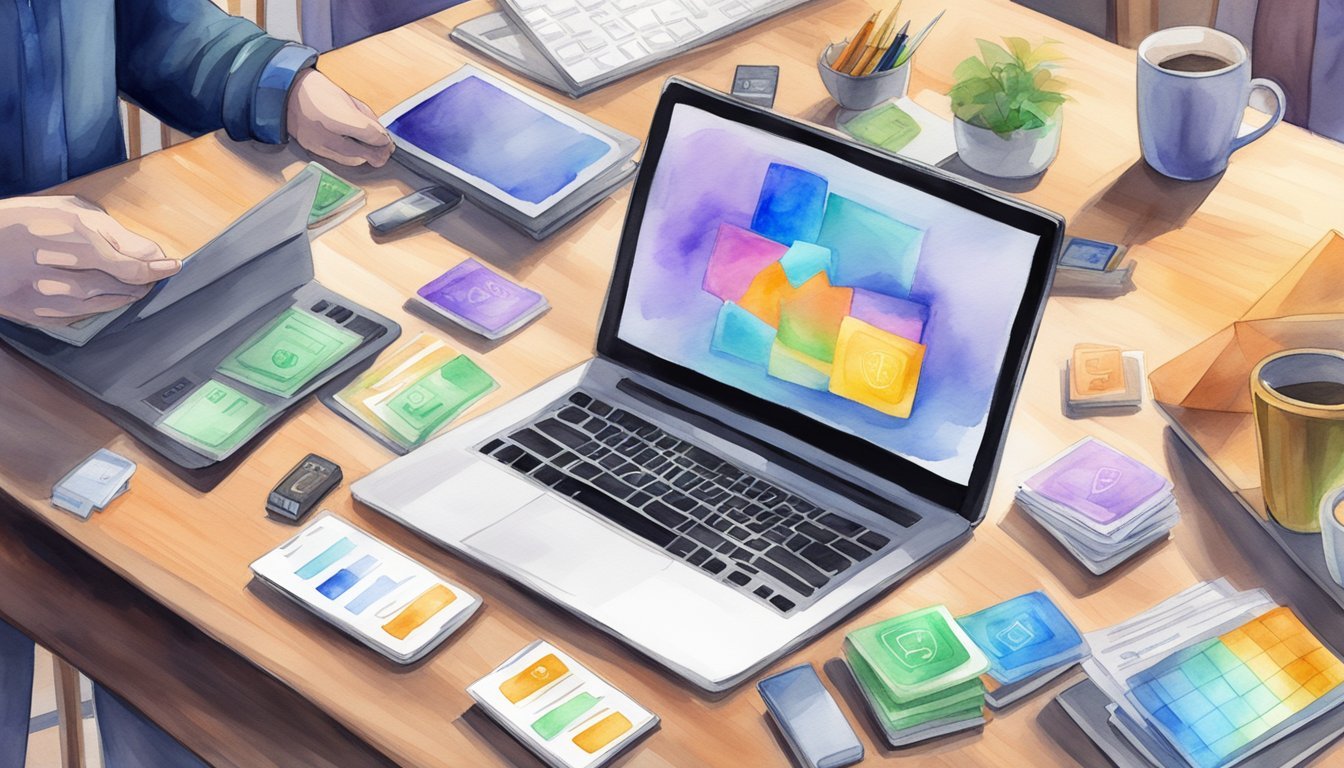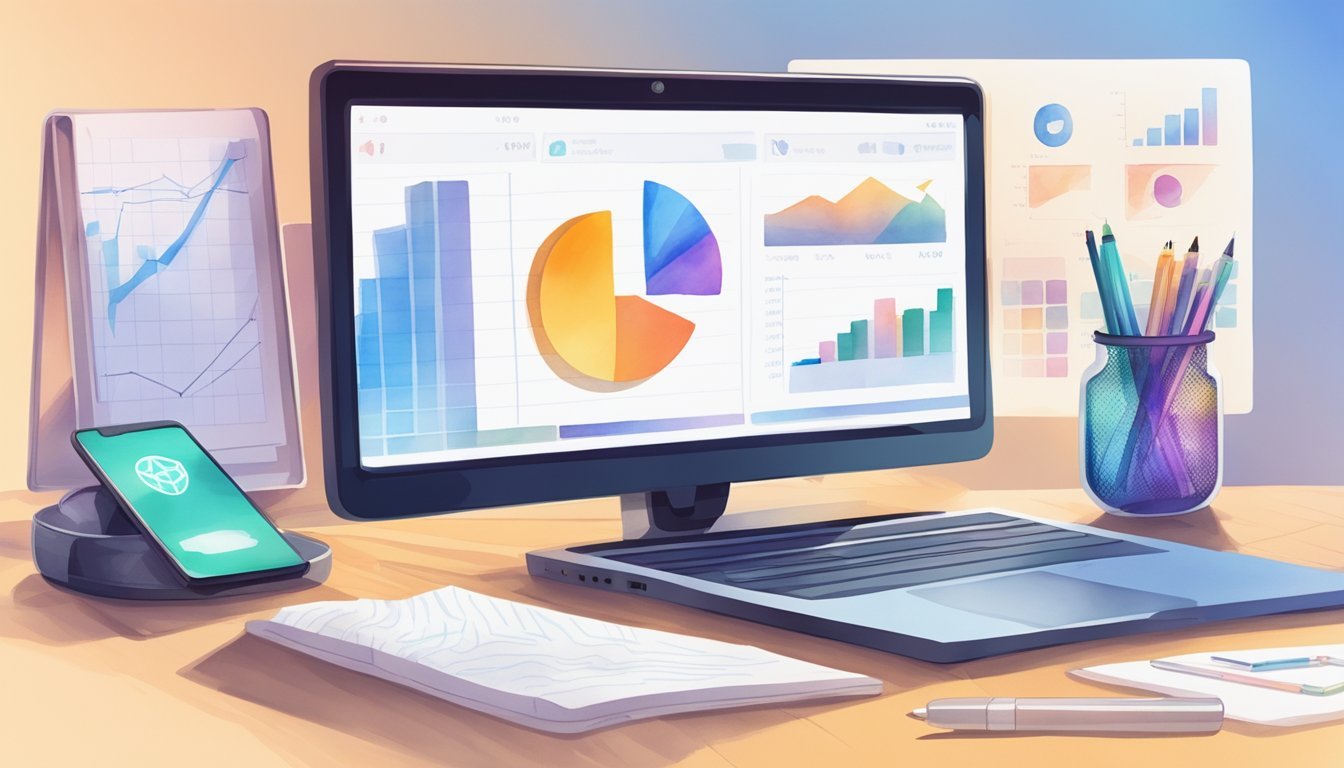7 Key Factors to Consider When Choosing a Crypto Wallet: Essential Tips for Secure Storage

Choosing the right crypto wallet is an essential step for anyone involved in digital currencies.
With so many options available, it can be overwhelming to decide which wallet best suits your needs.
A good crypto wallet not only provides security for your funds but also offers convenience and a user-friendly experience.

Understanding the key factors that go into this decision can help ensure that your digital assets are safe and easily accessible. Whether you’re storing crypto for the long-term or using it for daily transactions, the right wallet can make all the difference.
This article will guide you through the essential considerations to make an informed choice.
1) Security Features
When choosing a crypto wallet, security should be your top priority.
Your wallet’s main role is to store private keys and keep your cryptocurrency safe.
Always look for wallets that offer robust security measures.
Two-factor authentication is crucial as it adds an extra layer of protection.
Encryption is another important feature.
It ensures that your private keys are not easily accessible to unauthorized users.
Hardware wallets are generally considered the most secure option.
These devices store your private keys offline, reducing the risk of hacking.
Backup options are critical.
They allow you to recover your crypto assets if you lose access to your wallet.
Make sure the wallet you choose has a good reputation.
Read reviews and do some research to see if it has faced any security breaches in the past.
Consider the trade-off between security and convenience.
Offline cold storage is more secure but less accessible than online wallets.
In addition, keep your wallet software up-to-date.
Regular updates often include essential security patches.
If you plan to interact with Web3 applications, ensure your wallet supports these features securely.
Online wallets might be necessary for these interactions but come with increased risks.
Remember, a secure wallet protects your investment and gives you peace of mind.
Make informed decisions based on the wallet’s security features to keep your digital assets safe.
2) Supported Cryptocurrencies

When choosing a crypto wallet, it’s critical to check which cryptocurrencies it supports.
Some wallets only cater to specific coins.
Others can store a wide variety of digital assets.
If you plan to diversify your portfolio with multiple cryptocurrencies, you will need a wallet that supports various coins.
This allows you to manage everything in one place.
Consider whether the wallet supports popular coins like Bitcoin, Ethereum, and Litecoin as well as any altcoins you might be interested in.
Different wallets may support different sets of coins.
Be aware that some specialized wallets are designed for a particular cryptocurrency.
For instance, some wallets are optimized for Bitcoin use only.
This can be an advantage if you plan to stick to one type of coin.
Research wallets that regularly update their supported cryptocurrency list.
This ensures new coins are added over time, keeping pace with market developments.
If the wallet doesn’t support a currency you plan to use now or in the future, it might not be the best choice for you.
Flexibility and foresight are important in the fast-evolving crypto space.
Check if the wallet provides an easy way to add and manage different cryptocurrencies.
A straightforward interface can significantly enhance your user experience.
Keeping these points in mind will help you select a crypto wallet that best fits your needs.
For more details, you can refer to this expert guide for beginners.
Stay informed and choose wisely.
3) Ease of Use

When choosing a crypto wallet, ease of use is crucial.
A user-friendly interface ensures you can access and manage your funds without any hassle.
Look for wallets with clear instructions and intuitive layouts.
Different wallets have varying levels of complexity.
Some are designed for experienced users, while others cater to beginners.
Choose one that matches your skill level.
Convenience matters, especially if you plan to make frequent transactions.
Ensure the wallet supports quick and simple transfers.
Mobile wallet apps often offer the highest level of convenience and accessibility.
Check for features like quick setup, easy navigation, and responsive design.
These features make a significant difference in your day-to-day use.
Consider how easily you can track your balances and transaction history.
A good wallet should provide clear, detailed information about your holdings.
Having everything in one place prevents confusion and makes managing your assets simpler.
Reading user reviews can help you gauge how easy a wallet is to use.
Look for feedback on the app’s design, functionality, and support.
This can give you insights into potential challenges and benefits.
Choosing a wallet with good customer support can be very helpful.
If you encounter any issues, quick access to help can save time and stress.
Ensure that the wallet provider offers support channels like live chat or email.
4) Backup Options

Backup options are crucial when choosing a crypto wallet.
If you lose access to your wallet, you could lose your funds permanently.
There are two main ways to back up your wallet: manual backups and cloud backups.
Manual backups involve writing down your recovery phrase or key on paper.
This method doesn’t depend on technology and can be very secure if stored safely.
Cloud backups save your recovery information online.
This is more convenient and can be accessible from anywhere, but make sure it’s encrypted and secure.
Some wallets, like the Bitcoin.com Wallet, offer built-in cloud backup options.
This makes it easier to recover your wallet if you lose access to your device.
However, always ensure that the service is reputable and secure.
To further enhance security, store your backups in multiple locations.
You might keep one copy in a safe at home and another in a safety deposit box.
Balance convenience and security by choosing a backup method that suits your needs.
It’s also important to update your backups regularly to reflect any changes to your wallet’s contents.
By prioritizing backup options, you can significantly reduce the risk of losing your cryptocurrency.
Always choose a wallet that provides reliable and secure backup solutions to protect your assets.
5) Customer Support

When choosing a crypto wallet, you need reliable customer support.
This is crucial, especially if you’re new to cryptocurrencies.
Look for wallets that offer multiple contact methods, like email and live chat.
You should test their response time before committing.
Send a few questions to see how quickly and effectively they respond.
A wallet with good customer service can help solve issues promptly.
This reduces the risk of losing access to your funds.
It’s also helpful if the wallet’s support team is knowledgeable and can provide clear guidance.
For example, some wallets have stellar customer service, which shows they care about their users.
Always check user reviews and testimonials to gauge customer satisfaction.
Effective customer support ensures you have assistance when you need it, making your crypto experience smoother and safer.
6) Device Compatibility

When choosing a crypto wallet, it’s important to consider its compatibility with various devices.
Some wallets are designed for mobile phones, while others work better on desktops or laptops.
If you often trade on the go, a mobile wallet might be the best fit.
These wallets typically have apps on both iOS and Android, making them convenient for everyday use.
For those who prefer trading on a computer, desktop wallets can offer a more robust experience.
These wallets support Windows, Mac, and sometimes Linux.
They usually have more features compared to mobile wallets.
Another option is a browser extension wallet.
These are great for quick access and can work on any device with a compatible web browser.
They are often used for interacting with decentralized applications (DApps).
Hardware wallets are physical devices that store your private keys offline.
They are compatible with most devices via USB or Bluetooth.
This option is excellent for those who prioritize security.
Always check if the wallet you are considering supports your device or devices.
This ensures smooth operation and ease of use.
Choosing the right wallet involves understanding how you plan to use it and on which devices.
Make sure the wallet matches your lifestyle and trading habits.
For example, if you need to switch between devices frequently, choose a wallet with seamless multi-device support.
7) Transaction Fees
When choosing a crypto wallet, pay close attention to transaction fees.
These fees can significantly impact your overall costs.
Different wallets have varying fee structures.
Some may offer lower fees for specific transactions, while others might charge more.
The fee amount can depend on network congestion.
If many people are using the network at once, fees may rise.
Bitcoin’s average transaction fee, for instance, has seen a significant increase, as high as $6.956.
There are different types of fees to consider.
Maker and taker fees, deposit fees, and withdrawal fees are common.
A wallet that charges a 0.1% fee on maker and taker transactions might still have a higher withdrawal fee, such as 3.5%.
Some wallets might offer zero deposit fees but compensate with higher trading or withdrawal fees.
It’s crucial to understand all these aspects before making a decision.
Additionally, think about how often you plan to trade or move your crypto.
If you’re a frequent trader, a wallet with lower transaction fees will save you money in the long run.
Reviewing and comparing wallets helps in identifying the best fit for your needs.
Each wallet has its own set of advantages and disadvantages related to fees.
Make sure to evaluate these carefully.
By comparing fees and understanding what you might be paying, you can choose a wallet that best suits your needs without unexpected costs.
Understanding Crypto Wallets

Crypto wallets are essential tools for managing and securing your digital assets.
They store private keys and enable you to send, receive, and monitor your cryptocurrency holdings safely.
What Are Crypto Wallets?
A crypto wallet acts like a digital wallet that securely stores your private keys, which are necessary to access and manage your cryptocurrency.
Think of it as a combination of a bank account and a safe, where you can both store and use your digital money.
There are several types of crypto wallets, each offering different features and levels of security.
They often come with unique functionalities like two-factor authentication (2FA) and biometric access, further securing your assets from unauthorized access.
Types of Crypto Wallets
There are three main types of crypto wallets: software wallets, hardware wallets, and paper wallets.
-
Software Wallets: These are applications you can download on your computer or smartphone. Examples include desktop wallets, mobile wallets, and web wallets. They offer a balance of ease of use and security, making them popular among beginners.
-
Hardware Wallets: These are physical devices that store your private keys offline, away from internet threats. Considered very secure, hardware wallets are ideal for those holding large amounts of cryptocurrency.
-
Paper Wallets: These involve printing your public and private keys on a piece of paper. While they are secure from online threats, you must keep the paper safe from physical damage and loss.
To explore the different types further, you might consider additional information available on sites like KuCoin and Binance Academy.
Security Features
Choosing a crypto wallet requires careful attention to security aspects.
Key points include the handling of private and public keys and the use of two-factor authentication (2FA).
Private Keys and Public Keys
Private keys are crucial for accessing your cryptocurrency.
They should be stored securely, often offline, to prevent hacking.
Public keys, on the other hand, are used to receive funds.
The security of your wallet mainly depends on how well your private keys are protected.
Hardware wallets often offer the best protection, as they keep private keys offline.
Consider other options like mobile or web wallets, but ensure they use strong encryption.
Always back up your keys to avoid losing access to your funds.
Two-Factor Authentication (2FA)
Two-Factor Authentication (2FA) adds an extra layer of security.
It requires not just a password, but also a second form of identification, like a code sent to your phone.
This helps protect against unauthorized access.
Ensure your chosen wallet supports 2FA.
It can significantly reduce the risk of unauthorized transactions.
Regularly update your 2FA settings and use strong, unique passwords.
This combination makes your crypto wallet much harder to compromise.
Ease of Use

Ease of use is crucial when selecting a crypto wallet.
Important considerations include the user interface and experience, as well as the compatibility with different devices.
User Interface and Experience
A simple and intuitive user interface (UI) can make managing your crypto easier.
Look for wallets that have a clear design and straightforward navigation.
Features like easy access to key functions, uncluttered layout, and helpful tutorials or guides enhance the overall experience.
Reading user reviews can provide insights into the usability of a wallet.
Example: Wallets like Coinbase and Trezor often receive high marks for their user-friendly interfaces.
These wallets provide an easy onboarding process, making them suitable for beginners.
Compatibility with Devices
Check if the wallet is compatible with the devices you use.
Many wallets are available as mobile apps for iOS and Android, while others work as desktop apps for Windows, macOS, and Linux.
Some wallets are available as browser extensions, which can be accessed on multiple devices.
If you often switch between devices, look for wallets that support seamless syncing across platforms.
Example: The KuCoin wallet offers both mobile and desktop versions, ensuring flexibility and ease of access from different devices.
This makes it convenient to manage your crypto assets on the go.






